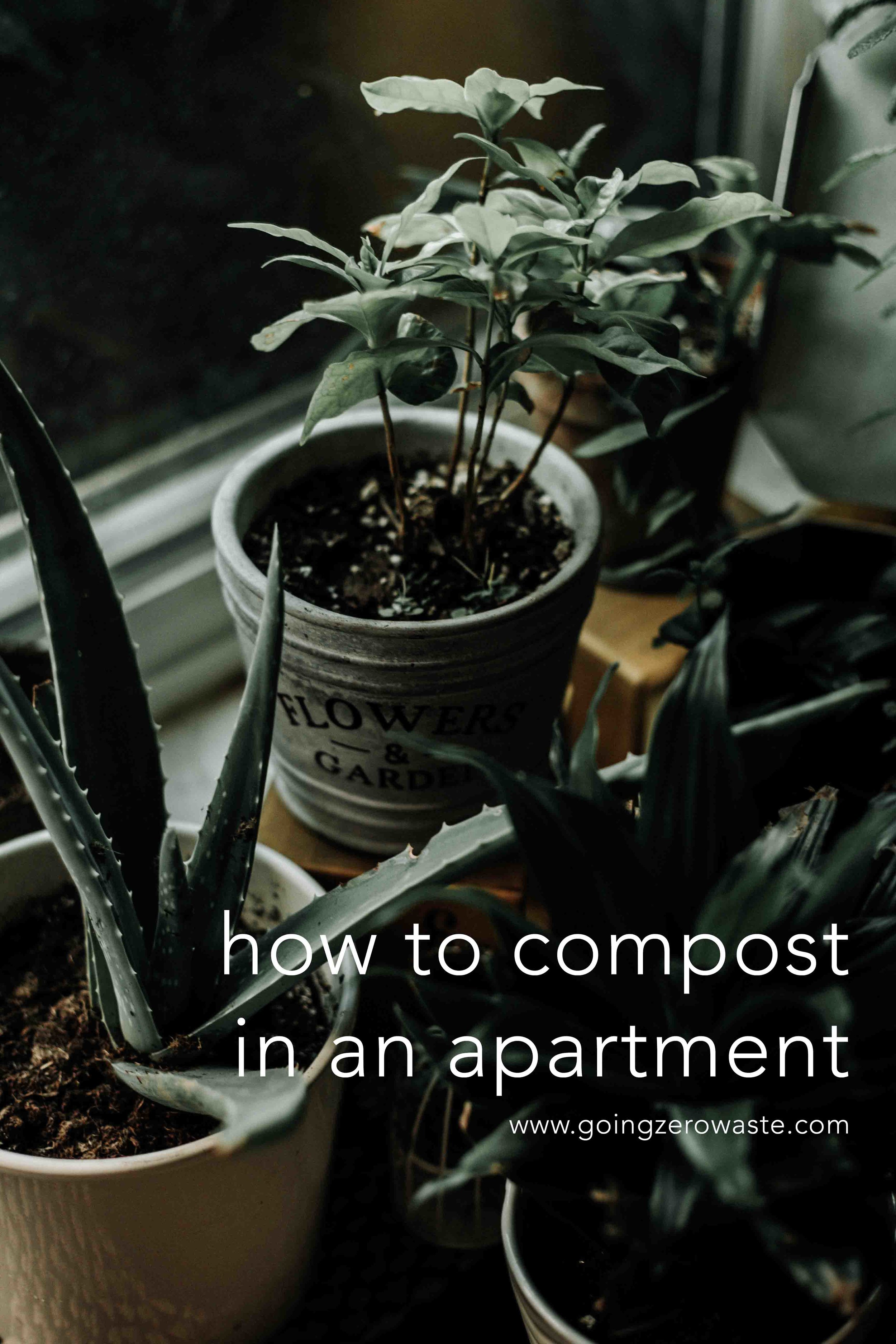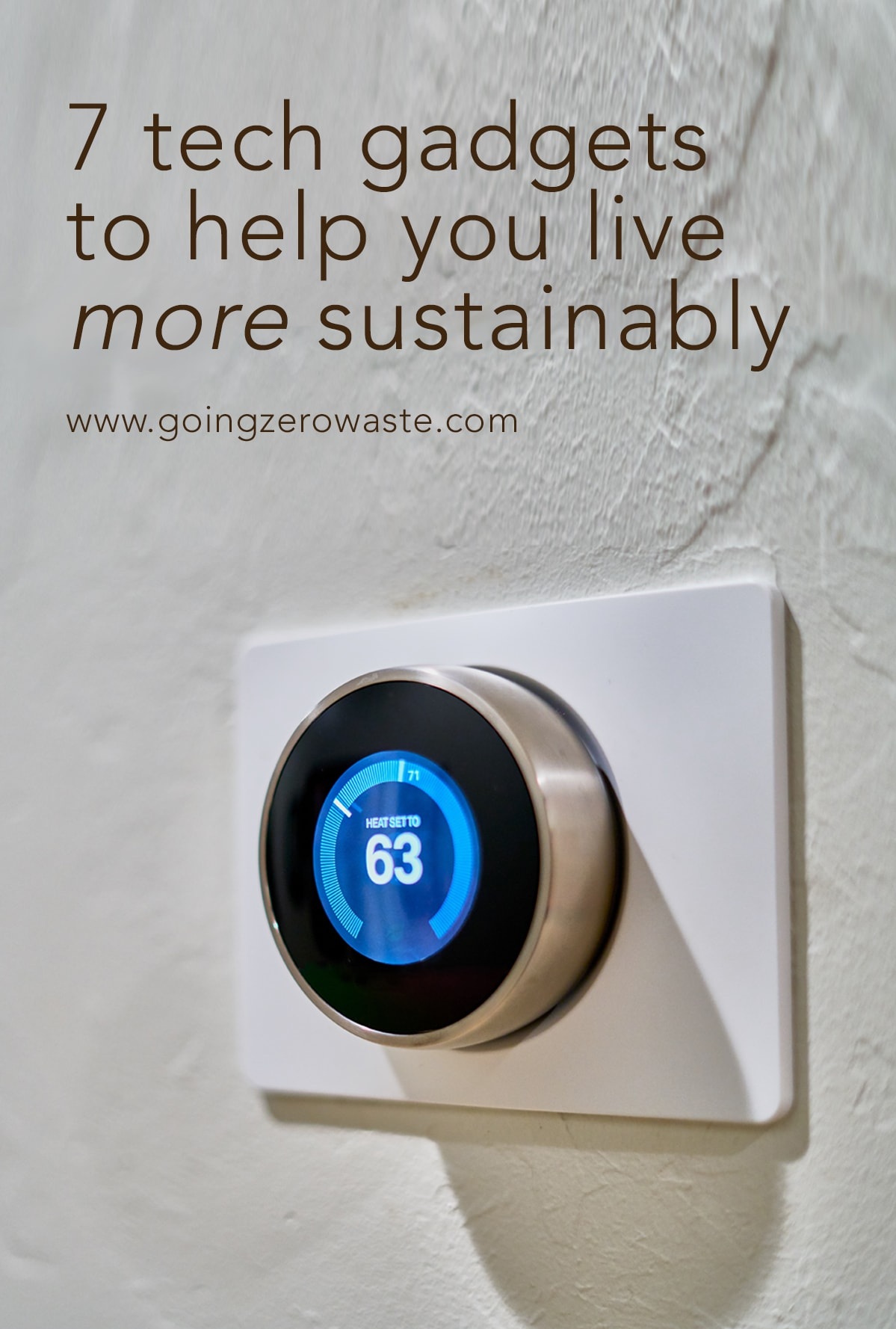I have a huge guide for backyard composting, but what if you don't have a backyard? Can you still compost? Of course you can!
If there's only one thing you take away from this blog, I want you to understand the power of composting. Composting is the most effective tools in the zero waste tool belt.
The average US household produces 650 lbs of organic trash a year, but most of that is landfilled. In fact 60% of our landfills are full of organic matter. You think it would break down since it's dumped into a giant hole in
the ground, but it doesn't because landfills aren't aerated.
It's called anaerobic decomposition, and all of that oxygen deprived, organic matter now releases methane into the atmosphere. Methane is 72% more powerful than CO2 which means it’s responsible for hastening climate related issues. You can read more about greenhouse gasses in my post How to Offset Your Carbon Footprint and Why You Should.
Because organic and inorganic materials are mixed together, think your trash bags, plastic, and food scraps it creates a perfect preserved atmosphere. Things like guacamole, hot dogs, and newspapers have been found in perfect condition from the 50s! (source)
Think of all the good we can do just by removing organics out of our landfills.
There's a misconception that compost is stinky, but it’s not. Compost doesn’t really smell like much at all. If anything, it’s just slightly earthy. The reason your trash stinks is because you’ve mixed organic materials with non-organics which are preventing the decomposition process.
worm bin:
Worm bins are one of the most common forms of indoor composting.
When it comes to composting, it’s important to keep a good mix of carbon and nitrogen. Carbon is paper, cardboard, news paper, dry leaves, etc.
Since, shredded paper can't be recycled, it's a great addition to keep your compost balanced! For more information and recycling tips be sure to check out my blog post How to Recycle Paper the Right Way!
Nitrogen is going to be most of your food scraps, and ideally you want to aim to keep your compost around 50% carbon and 50% nitrogen.
There are several tutorials online where you can make your own compost bin or you can buy a worm bin. I have a worm bin 360 that I really liked! I unfortunately kept my worm bin outside and sent 1,000 worms to worm heaven. *May they rest in peace*
Worms like to be kept around room temperature, so they're the perfect indoor pet that happen to like eating your food scraps. Just don't add dairy, meat, or citrus peels.
You can typically find red wigglers, the composting worm, at your local bait shop.
bokashi:
I'm super intrigued by the bokashi bin. It seems really simple almost so simple that it’s too good to be true. It's a giant bucket and you add all of your compost including meat and dairy into the base.
You mash it all down and then add in an activator mix which is full of microbes which hastens the process of decomposition. According to the website you should have compost in 4 weeks. I don't think you have to keep a balance of nitrogen and carbon, I believe you can only add food scraps and the activator mix takes care of the rest!
trench method:
If you don't have a yard, this is definitely a reconnaissance mission. Tench composting is where you dig a hole in the ground and bury your compost. It's really easy, effective, and inexpensive.
The only problem is finding a place to do it.
electronic composting:
Yep, they actually make electronic composters that will turn your food scraps into compost over night! How cool is that?
If you want something that is no fuss and instant check out the foodcycler.
farmers market:
Most farmers at my my farmers market have large compost piles. They take odds and ends off the vegetables that people don't want like carrot tops or radish tops (even though your should 100% be eating those things and check out my post on 8 Innovative ideas to Cook with those Food Scraps) to take back to the farm and compost.
Ask one of the farmers if you can bring your scraps to add to their pile.
I also have neighbors and friends with chickens who are more than happy to take my scraps off my hands. It certainly doesn't hurt to ask around and see who could use them.
community garden:
Community gardens often have compost plots. See if you can join the community garden and add your food scraps to the pile. Who knows, you might make some new friends and collect some delicious produce in the process.
city wide service:
Check to see if your city offers composting or if there's a business in town that collects food scraps. Often times someone is out there performing that service, it just takes a little bit of googling.
My city doesn't offer municipal compost, but they do subsidize backyard composters for people. All it took was a short google search!
get online:
There are so many ways to plug into groups and find people with the internet today. If you're trying to compost, I'm sure there's someone in your area that has chickens, a composter, or a large garden check out the app ShareWaste.
How do you compost?
This post contains affiliate linking. This means if you choose to purchase one of these items I will make a slight commission for referring you. You can read more on my disclosure page.











